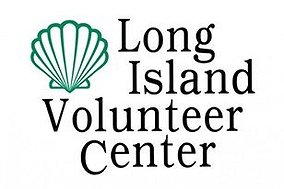Long Island, NY - November 8th, 2013 - As part of a state-wide initiative under the direction of Governor Cuomo, the New York State Commission on National & Community Service has provided each of the 10 Regional Volunteer Centers (RVCs) across the State with $50,000 in funding to increase their capacity to engage volunteers to help prepare New York’s communities for potential disasters of the type experienced with Hurricane Irene, Tropical Storm Lee and Superstorm Sandy. The RVCs were created by the Commission three years ago and have successfully recruited and placed over one million volunteers during that time. The Long Island Volunteer Center is the RVC for the Nassau and Suffolk counties.
The State Commission received $500,000 to cover this disaster preparedness initiative from the Federal Corporation for National and Community Service (CNCS) in recognition of the potential need and of the efforts made by the RVCs in responding to prior disasters. As stated in the CNCS FY2014 Congressional Budget Justification, “New York State’s regional volunteer center infrastructure was a leading entity coordinating volunteers and national service resources during the response to Hurricane Sandy, and it continues to connect New Yorkers with opportunities to support the state’s ongoing restoration efforts.”
“We appreciate the Governor’s and the Commission’s support in helping our communities prepare for future weather-related and other potential crises that we might face. In the past, we’ve always pulled together to overcome adversity,” says Diana O’Neill, executive director of the Long Island Volunteer Center. The Long Island Volunteer Center organized many community events related to disaster preparedness, response and recovery. Some include corporate volunteers creating a sustainable community garden at a Senior Center in Long Beach, volunteers planting dune grass to strengthen the dunes in Long Beach and assisting members of the community to prepare disaster preparedness kits helping to raise awareness of being prepared. The Long Island Volunteer Center also recruited and referred volunteers to disaster recovery volunteer groups performing essential work in the storm affected communities.
The funds will be used to hire a Regional Disaster Voluntary Agency Liaison with experience in disaster services and volunteer management. Each Regional Disaster VAL will be housed within a Regional Volunteer Center and build relationships among Federal and State government, and voluntary, faith-based, and community entities on a regional level.
“The Long Island Volunteer Center immediately responded to the devastating effects of Super Storm Sandy by mobilizing and placing volunteers to assist Long Islanders. This support will help us to continue our efforts to serve Nassau and Suffolk counties for the long term recovery as well as be even better prepared for possible future natural disasters,” says Simone Solz Leo, Regional Disaster Voluntary Agency Liaison. Simone Solz Leo is a Licensed Master Social Worker who has many years of experience in volunteer management in Long Island leading September 11 and MLK, Jr. National Days of Service. Additionally, she has greatly contributed to the volunteer efforts immediately following Super Storm Sandy organizing drives for flooded communities, coordinating community projects, actively participating in long term recovery group efforts, and presenting on managing spontaneous, unaffiliated volunteers.
The Regional Disaster VALs will recruit and train a corps of skilled disaster volunteers across the State. These skills include, but are not limited to, trades such as electricians, plumbers, carpenters or volunteer management. Members of the community who feel they have appropriate skills to help in disaster relief may apply by going to the website of Long Island Volunteer Center at www.longislandvolunteercenter.org.
The VALS will also engage military veterans in disaster service opportunities including preparedness, response, and recovery. Regional Disaster VALS will meet with the State Division of Veterans Affairs, local veterans' organizations, and State military representatives to identify best practices to engage veterans who could serve as Disaster Volunteers or State Disaster Volunteer Leaders. “We are particularly inspired by the opportunity to have our veterans be part of this effort,” said Mark Walter, Executive Director of the New York State Commission on National & Community Service. “This initiative will capitalize on the organizational and management expertise of veterans, as well as include them as problem solvers in their communities.”
The LIVC is the resource center for volunteerism and community service initiatives throughout Nassau and Suffolk counties. Established in 1992, LIVC operates year round and its services are provided free of charge. The LIVC collaborates with corporations and community organizations to address the needs of Long Islanders. LIVC is an affiliate of the HandsOn Network since 2008, connecting agencies seeking volunteers with individuals and groups looking for ways to serve their communities. In 2011, the LIVC was designated by New York State as the Regional Volunteer Center for Long Island.
The New York State Commission on National and Community Service was established in 1994 by an Executive Order of the Governor, and administers programs funded by the National Community Service Trust Act of 1993, including AmeriCorps State and AmeriCorps Education Awards programs. The Commission members are diverse and bi-partisan and are appointed by the Governor.
The State Commission on National & Community Service works collaboratively with the Corporation for National & Community Service and New York State Education Department to administer 240 national service programs that engage more than 80,000 volunteers annually in the State of New York. The State Commission and its partners leverage the impact of AmeriCorps, VISTA, and Senior Corps programs to address the needs identified in the State’s service and civic engagement agenda in the core areas of education, environmental stewardship, healthy futures, disaster services, veterans and military families, and economic opportunity. In addition, the State Commission leads the efforts of a statewide network of ten regional volunteer centers that partner with community-based organizations to deliver training and resources that build volunteer management capacity in order to more effectively meet state and local needs.










